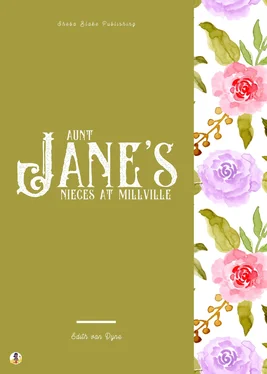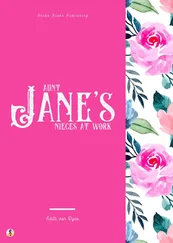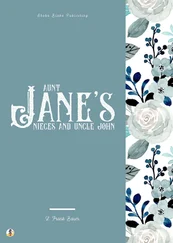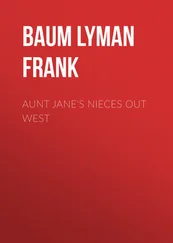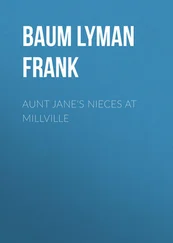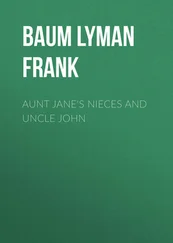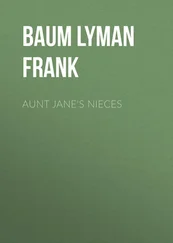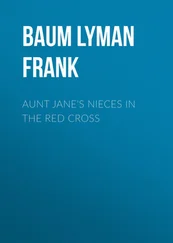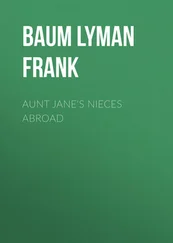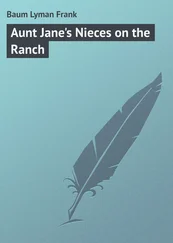Edith van Dyne
Aunt Jane’s Nieces at Millville
First published by Sheba Blake Publishing Corp. 2021
Copyright © 2021 by Edith van Dyne
All rights reserved. No part of this publication may be reproduced, stored or transmitted in any form or by any means, electronic, mechanical, photocopying, recording, scanning, or otherwise without written permission from the publisher. It is illegal to copy this book, post it to a website, or distribute it by any other means without permission.
This novel is entirely a work of fiction. The names, characters and incidents portrayed in it are the work of the author's imagination. Any resemblance to actual persons, living or dead, events or localities is entirely coincidental.
Edith van Dyne asserts the moral right to be identified as the author of this work.
Sheba Blake Publishing Corp.
2288 Crossrail Dr
Atlanta, GA 30349
support@shebablake.com
First edition
Cover art by Sheba Blake
Editing by Sheba Blake
This book was professionally typeset on Reedsy
Find out more at reedsy.com


“How did I happen to own a farm?” asked Uncle John, interrupting his soup long enough to fix an inquiring glance upon Major Doyle, who sat opposite.
“By virtue of circumstance, my dear sir,” replied the Major, composedly. “It’s a part of my duty, in attending to those affairs you won’t look afther yourself, to lend certain sums of your money to needy and ambitious young men who want a start in life.”
“Oh, Uncle! Do you do that?” exclaimed Miss Patricia Doyle, who sat between her uncle and father and kept an active eye upon both.
“So the Major says,” answered Uncle John, dryly.
“And it’s true,” asserted the other. “He’s assisted three or four score young men to start in business in the last year, to my certain knowledge, by lending them sums ranging from one to three thousand dollars. And it’s the most wasteful and extravagant charity I ever heard of.”
“But I’m so glad!” cried Patsy, clapping her hands with a delighted gesture. “It’s a splendid way to do good—to help young men to get a start in life. Without capital, you know, many a young fellow would never get his foot on the first round of the ladder.”
“And many will never get it there in any event,” declared the Major, with a shake of his grizzled head. “More than half the rascals that John helps go to the dogs entirely, and hang us up for all they’ve borrowed.”
“I told you to help deserving young men,” remarked Uncle John, with a scowl at his brother-in-law.
“And how can I tell whether they’re desarving or not?” retorted Major Doyle, fiercely. “Do ye want me to become a sleuth, or engage detectives to track the objects of your erroneous philanthropy? I just have to form a judgment an’ take me chances; and whin a poor devil goes wrong I charge your account with the loss.”
“But some of them must succeed,” ventured Patsy, in a conciliatory tone.
“Some do,” said John Merrick; “and that repays me for all my trouble.”
“All your throuble, sir?” queried the Major; “you mane all my throuble—well, and your money. And a heap of throuble that confounded farm has cost me, with one thing and another.”
“What of it?” retorted the little round faced millionaire, leaning back in his chair and staring fixedly at the other. “That’s what I employ you for.”
“Now, now, gentlemen!” cried Patsy, earnestly. “I’ll have no business conversation at the table. You know my rules well enough.”
“This isn’t business,” asserted the Major.
“Of course not,” agreed Uncle John, mildly. “No one has any business owning a farm. How did it happen. Major?”
The old soldier had already forgotten his grievance. He quarreled persistently with his wealthy employer and brother-in-law—whom he fairly adored—to prevent the possibility (as he often confided to Patsy) of his falling down and worshiping him. John Merrick was a multi-millionaire, to be sure; but there were palliating circumstances that almost excused him. He had been so busily occupied in industry that he never noticed how his wealth was piling up until he discovered it by accident. Then he promptly retired, “to give the other fellows a chance,” and he now devoted his life to simple acts of charity and the welfare and entertainment of his three nieces. He had rescued Major Doyle and his daughter from a lowly condition and placed the former in the great banking house of Isham, Marvin & Company, where John Merrick’s vast interests were protected and his income wisely managed. He had given Patsy this cosy little apartment house at 3708 Willing Square and made his home with her, from which circumstance she had come to be recognized as his favorite niece.
John Merrick was sixty years old. He was short, stout and chubby-faced, with snow-white hair, mild blue eyes and an invariably cheery smile. Simple in his tastes, modest and retiring, lacking the education and refinements of polite society, but shrewd and experienced in the affairs of the world, the little man found his greatest enjoyment in the family circle that he had been instrumental in founding. Being no longer absorbed in business, he had come to detest its every detail, and so allowed his bankers to care for his fortune and his brother-in-law to disburse his income, while he himself strove to enjoy life in a shy and boyish fashion that was as unusual in a man of his wealth as it was admirable. He had never married.
Patricia was the apple of Uncle John’s eye, and the one goddess enshrined in her doting father’s heart. Glancing at her, as she sat here at table in her plain muslin gown, a stranger would be tempted to wonder why. She was red-haired, freckled as a robin’s egg, pug-nosed and wide-mouthed. But her blue eyes were beautiful, and they sparkled with a combination of saucy mischief and kindly consideration for others that lent her face an indescribable charm.
Everyone loved Patsy Doyle, and people would gaze longer at her smiling-lips and dancing eyes than upon many a more handsome but less attractive face. She was nearly seventeen years old, not very tall, and her form, to speak charitably, was more neat than slender.
“A while ago,” said the Major, resuming the conversation as he carved the roast, “a young fellow came to me who had invented a new sort of pump to inflate rubber tires. He wanted capital to patent the pump and put it on the market. The thing looked pretty good, John; so I lent him a thousand of your money.”
“Quite right,” returned Uncle John, nodding.
“But pretty soon he came back with a sad tale. He was in a bad fix. Another fellow was contesting his patent and fighting hard to head him off. It would take a lot of money to fight back—three thousand, at least. But he was decent about it, after all. His father had left him a little farm at Millville. He couldn’t say what it was worth, but there were sixty acres and some good buildings, and he would deed it to you as security if you would let him have three thousand more.”
“So you took the farm and gave him the money?”
“I did, sir. Perhaps I am to blame; but I liked the young fellow’s looks. He was clean-cut and frank, and believed in his pump. I did more. At the climax of the struggle I gave another thousand, making five thousand in all.”
Читать дальше
